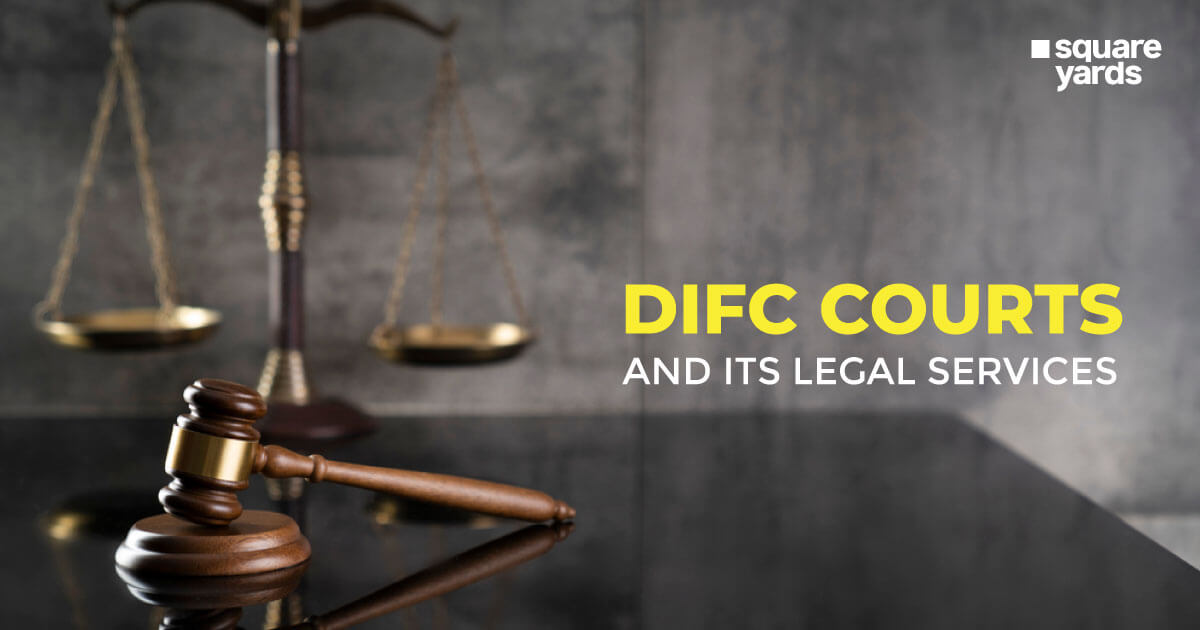A constitutional amendment to Article 121 created the DIFC Courts Services of the UAE Constitution. The law enacts a Financial Free Zone Law by the Federation, dividing power between Emirati authorities and the Federation. The DIFC Court allows the government to establish a Financial Free Zone, which was made possible after the integration of Dubai and Federal Law. In this article, we will walk through the understanding of the DIFC Court, its rules, jurisdiction, differences, and different types of DIFC courts along with its services.
Elaboration of DIFC Courts
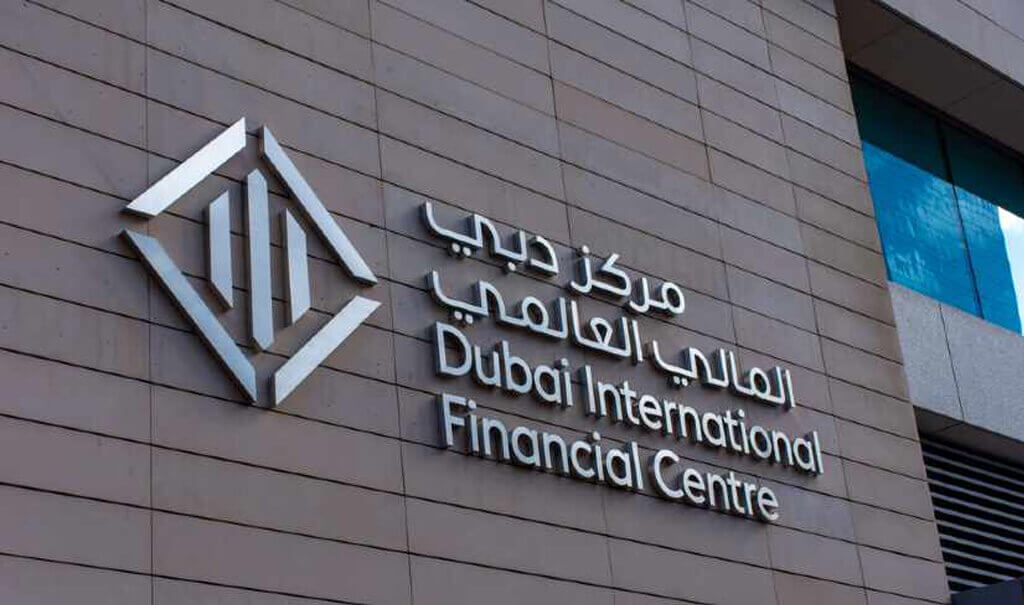
The DIFC Court is a special independent English language common law judiciary. The DIFC’s full form is Dubai International Finance Centre (DIFC). The name itself states that its jurisdiction governs civil and commercial disputes regionally, nationally, and internationally as well. The DIFC court was created in 2002 by Sheikh Maktoum bin Rashid Al Maktoum, who was the ruler of Dubai at the time.
The DIFC courts were established under Dubai Law No. 12 and 10 in 2004. The DIFC courts are strategically designed to ensure efficiency, flexibility, and greater certitude in legal proceedings, meeting international standards.
What is DIFC jurisdiction?
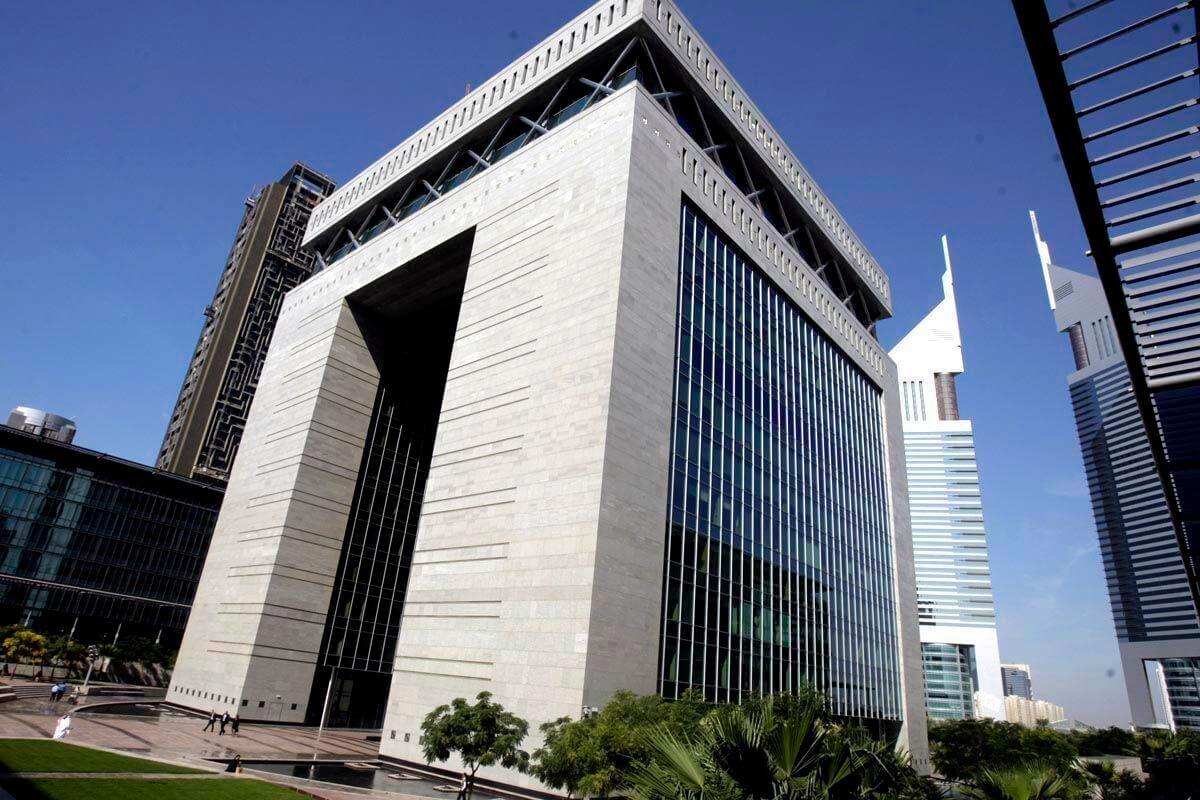
The DIFC Courts’ jurisdiction is limited to civil and commercial disputes only. In the current period, criminal proceedings don’t fall under the DIFC Court, which might be introduced later on. In the case of criminal issues raised within DIFC, they are referred to the relevant external channels.
DIFC Courts Services perform independently to comply with certain rules and regulations. Within the jurisdiction of DIFC, such courts opt for the settlement of commercial and civil disputes according to the relevancy of which is as follows :
- Desecration
- Compensations
- Replacement
- Discharge
The other DIFC-provided services are as follows :
- Practitioners registration
- E-Bundle
- Pro Bono Programme
- Probate
- Service Charter
- Probate & Wills services
- Arbitration suites
- Future Courts
What is the Difference Between Dubai Courts and the DIFC Courts?
The basic difference between the Dubai Court and the DIFC Court is, the DIFC Court’s jurisdiction is limited to commercial and civil disputes. On the other hand, Dubai’s civil court looks after all the other cases. Moreover, due to following different laws, DIFC Courts case decisions are based on English common law, and the Dubai civil courts follow the ‘Federal Civil Procedural Laws.’
Can DIFC Courts Apply English Law?

The Dubai International Financial Centre (DIFC) applies English Common Law as it is part of the DIFC Laws Certificate programme. The DIFC Court includes two-tier English language courts within the Dubai court system. Unlike the other Arabic language courts within Dubai’s court system, the DIFC follows common law proceedings instead of civil law. The DIFC flexibility states that the applicable law is chosen by the absent agreement or the parties. Moreover, foreign qualified lawyers may get rights of audience in the court easily as long as they are qualified in the English language.
DIFC Courts and the Offered Service
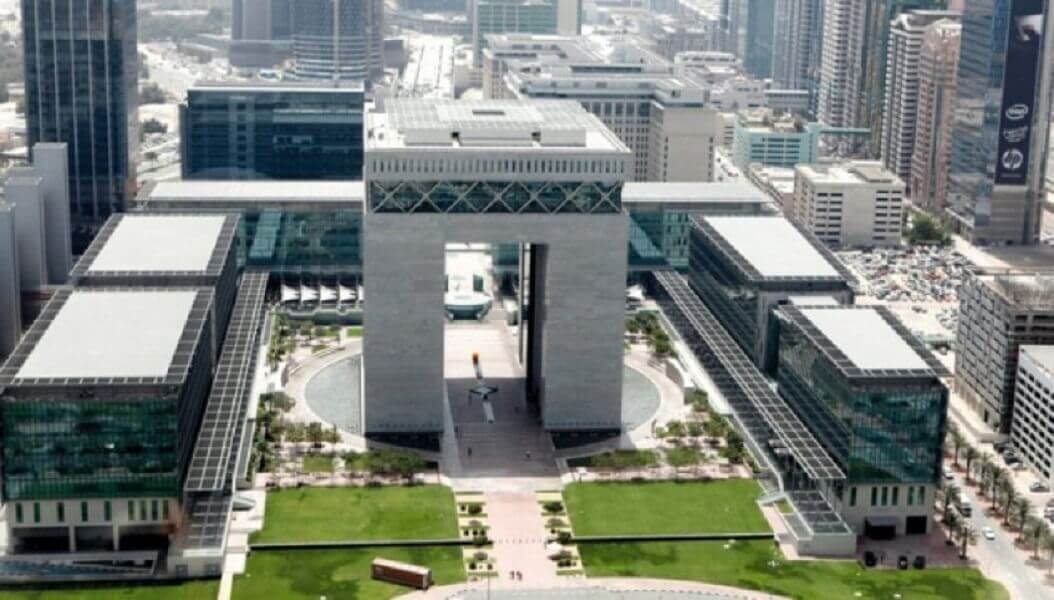
The DIFC legal framework is divided into several categories and its law administration is done through specialised services and courts. The below-mentioned details will give you information about the different courts and their services.
-
Small Claims Tribunal
The Small Claims Tribunal (SCT) is a DIFC court formed in the year 2007 for specific claims under DIFC jurisdiction for court hearings and resolving purposes. The SCT has an efficient dispute resolution body. The dispute resolution and around four weeks. The cases in which STC deals are as follows:
STC facilitates its services if the amount or valuation of the claim is lower than AED 500,000. In case of an employment dispute, if both involved parties agree in writing for DIFC Courts, SCT settlement assistance.
Note : In case the entities are not satisfied with the resolution provided by SCT may seek legal advice prior to appealing the Court of First Instance (CFI).
-
Court of First Instance
The Court of First Instance is a special court that holds complete jurisdiction over disputes along with single-judge proceedings. The jurisdiction over all disputes about:
-
- Disputes in contracts involving DIFC
- Those applications that fall under DIFC jurisdiction are in compliance with the DIFC rules and regulations.
- Appeals and objections against unsatisfied judgments made by other DIFC regulatory bodies if they fall under the DIFC rules and regulations.
-
Court of Appeal
The Court of Appeal facilitates the service to make relevant appeals against the settlement decision of the CFI (Court of First Instance). The Court of Appeal is considered the supremest court in the legal framework of DIFC. In addition to that, in this court parties can seek assistance in legal justice only against the judgement made by lower courts. The Court of Appeal deals with new cases as it provides the facility of judicial review. Moreover, upon the request of DIFC bodies, the Court of Appeal provides an interpretation of any DIFC laws.
-
Courts of the Future
The Courts of the Future only perform hearings on complex cases. The appointed judges are specialists in case evaluation against industry-specific happenings in order to provide fast-track assistance to disputes. Let’s understand the Courts of the Future’s responsibility with an example. The court will hear cases regarding special engineering projects or similar cases like that. Such cases like cybercrimes, data security breaches, data misuse, and concerns related to the research and development of new technologies are highlighted. Space-related concerns and High Tech labs fall under the jurisdiction of the Courts of the Future.
-
Digital Economy Court
Digital Economy Courts are specially designed courts that look into the matters of digital economy disputes. The Digital Economy Court looks after both national and international disputes, which include blockchain, big data, colour services, robotics, and 3D printing.
-
Arbitration Division
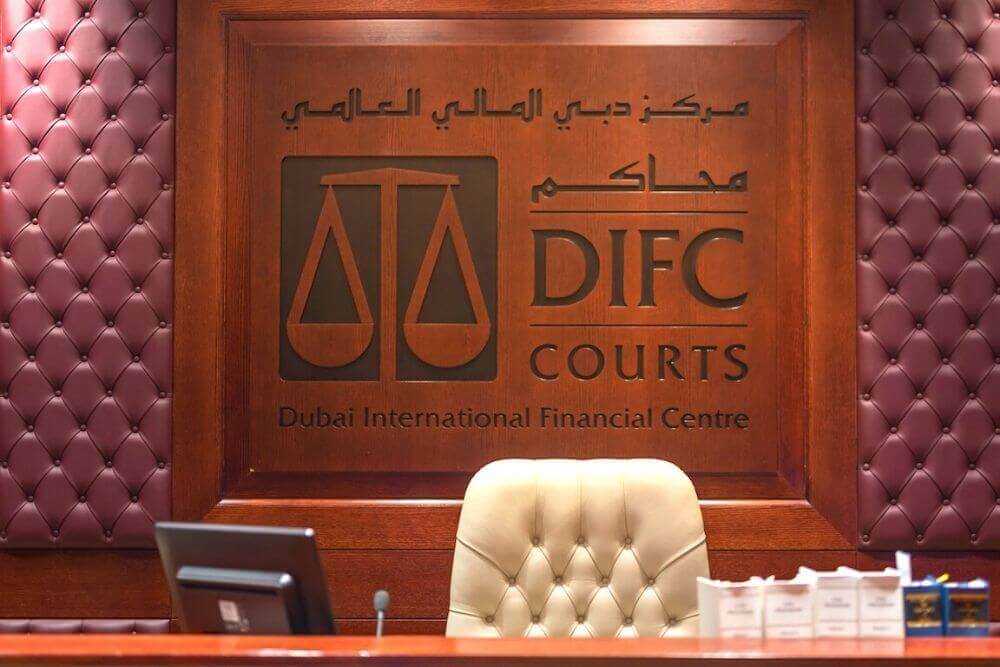
The Arbitration Division is another salient service offered by DIFC Courts Services, specifically for institutions in the MENA region. It has adopted the common law principle in the proceedings. The Arbitration Division appoints specialised judges to deal with international arbitration and others, such as :
-
- Arbitrary agreement interpretation
- Once the process was concluded, the Arbitration Division initiated decision enforcement.
- The Arbitration Division appoints independent arbitrators.
- During the arbitral proceedings, the body implements interim measures.
In addition, an Arbitration Working Group was established to assist this division. Professionals for various institutions, such as industry-related organisations, educational institutions, and others, were requested to share salient practices and development with the advisory team.
Implementation of DIFC Court Judgements
DIFC has established a global image in terms of enforcement regimes. Various treaties play their part in the enforcement of the DICF Court’s judgement. Moreover, the judgements and decisions of the DIFC Court get implemented both locally and internationally.
-
Will Service
The DIFC Courts services give non-Muslim residents investment opportunities in the country and the preference to transfer their assets to their appointed guardians and children.
DIFC Court Fee Structure
All of the details about the DIFC court fee are mentioned in the table below :
| Claim Value | Fee |
| Up to and including USD 500,000 | 5% of the value of the claim and/or the property with
a minimum of USD 1,500 |
| USD 500,000 – USD 1 million | USD 25,000 + 1% over USD 500,000 |
| USD 1 million – USD 5 million | USD 30,000 + 0.5% over USD 1 million |
| USD 5 million – USD 10 million | USD 50,000 + 0.4% over USD 5 million |
| USD 10 million – USD 50 million | USD 70,000 + 0.15% over USD 10 million |
| Over 50 million | USD 130,000 |
DIFC Court Location, Timings & Contact Details

-
Location
The DIFC Courts are located in the Gate District’s building 4 in DIFC.
-
Timings
The DIFC Courts timings state from 8:00 AM to 4:00 PM, and the registry horse starts from 8:30 AM to 4:00 PM. In addition, both offices are closed on weekends.
-
Contact Details
The DIFC courts contact service is reachable via telephone and the official number is +971-4-427-3333
To Sum Up
The DIFC Courts jurisdiction governs civil and commercial disputes locally, regionally, and globally. They are a special independent English language common law judiciary. The jurisdiction of DIFC courts is limited to civil and commercial disputes, whereas the Dubai Civil Court looks after the rest of the cases. The DIFC flexibility states that the applicable law is chosen by the absent agreement or the parties.
More Useful Articles for You :
| Real Estate Laws in Dubai | New UAE Labour Law 2022 |
| New Bounced Cheque Law in UAE | Health Policies UAE |
Frequently Asked Questions (FAQs)
Filing a lawsuit in Dubai requires the plaintiff or their representative to present the 'Statement of Claim' and other supporting documents to the CMS (Case Management Office) in court or by creating electronic records.
The DIFC Court is a special independent English language common law judiciary. The DIFC's full form is Dubai International Finance Centre (DIFC).
The DIFC is centrally located in the heart of the city of gold, 'Dubai'. It is one of the most sought-after locations for businesses, visitors, and residents alike.
The DIFC is empowered to create its own legal and regulatory framework. It's a Financial Free Zone defined in Federal Law No. 8 of 2004 and is considered an independent jurisdiction within the UAE. The strategically designed government body looks after commercial matters.
The DIFC Courts' law is based on an independent English language common law judiciary, based in the Dubai International Financial Centre, that has the jurisdiction to govern commercial as well as civil disputes locally, regionally, and internationally. How do I file a court case in Dubai?
What does DIFC stand for?
What city is the DIFC in Dubai?
What law applies in the DIFC?
What law is the DIFC Court based on?

